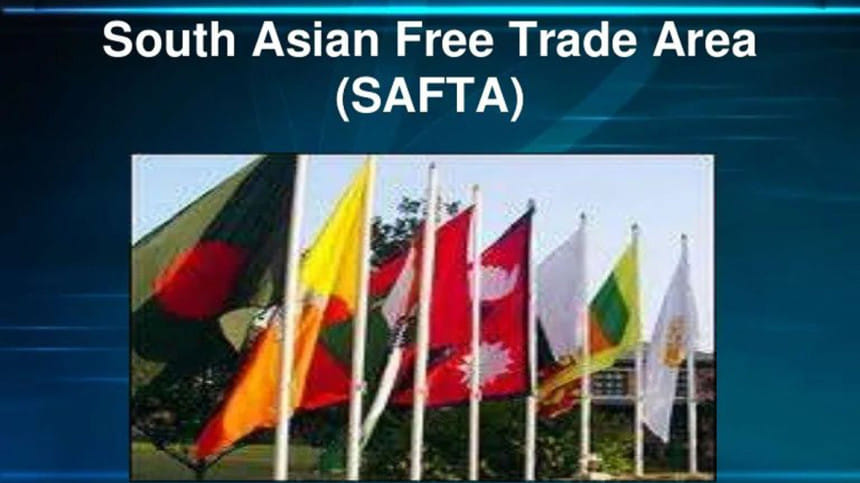Use Safta experience in bilateral talks

Bangladesh should use its experience as a member of the South Asian Free Trade Area (Safta) in its discussions for securing trade deals with countries all over the world, according to speakers at a book launching ceremony in Dhaka yesterday.
The book, titled "The Understanding of Free Agreements: The Rhetoric and Reality of Safta", was written by Neyamul Islam, first secretary of the National Board of Revenue, and published by University Press Limited (UPL).
Speakers said Bangladesh would benefit if it uses the experience gained from being in Safta in all potential bilateral agreements that are being discussed, such as the Single Euro Payments Area, Bay of Bengal Initiative on Multi-Sectoral Technical and Economic Cooperation, free trade agreements, and the Bangladesh, Bhutan, India, and Nepal Motor Vehicle Agreement.
Professor Mustafizur Rahman, a distinguished fellow of the Centre for Policy Dialogue, said integrating three dimensions of the economy -- trade, investment and transport -- would improve the country's supply capacity and competitiveness.
Most of the goods exported from Bangladesh mainly go to North American and European countries but to take advantage of the "Asian Century", the country needs to expand its hold on the Asian market.
Mustafizur Rahman, a distinguished fellow of CPD, said integrating three dimensions of the economy -- trade, investment and transport -- would improve supply capacity and competitiveness
"So, Bangladesh needs to increase its supply capacity and emphasis should be placed on trade facilitation," he added.
Selim Raihan, a professor of economics at the University of Dhaka, said regional cooperation is being discussed by different countries across the globe, particularly among neighbouring countries.
"But there is a debate over the extent to which such regional cooperation would promote global free trade," he added.
Raihan, also executive director of the South Asian Network on Economic Modeling, went on to say that regional cooperation in South Asia is very low while regional trade is very high.
Islam, the author, said the book delves into an objective assessment of Safta from fresh perspectives. He also explored various provisions of the North American Free Trade Agreement and General Agreement on Tariffs and Trade.
Islam believes the South Asian Association for Regional Cooperation may play an instrumental role in ensuring an effective South Asian intra-trade system.
Professor Md Akhtaruzzaman, vice chancellor of the University of Dhaka; Mohammad Abu Yusuf, joint secretary of the finance ministry; Ali Ahmed, an expert on foreign trade; and Mahrukh Mohiuddin, managing director of UPL, also spoke at the event.

 For all latest news, follow The Daily Star's Google News channel.
For all latest news, follow The Daily Star's Google News channel. 



Comments